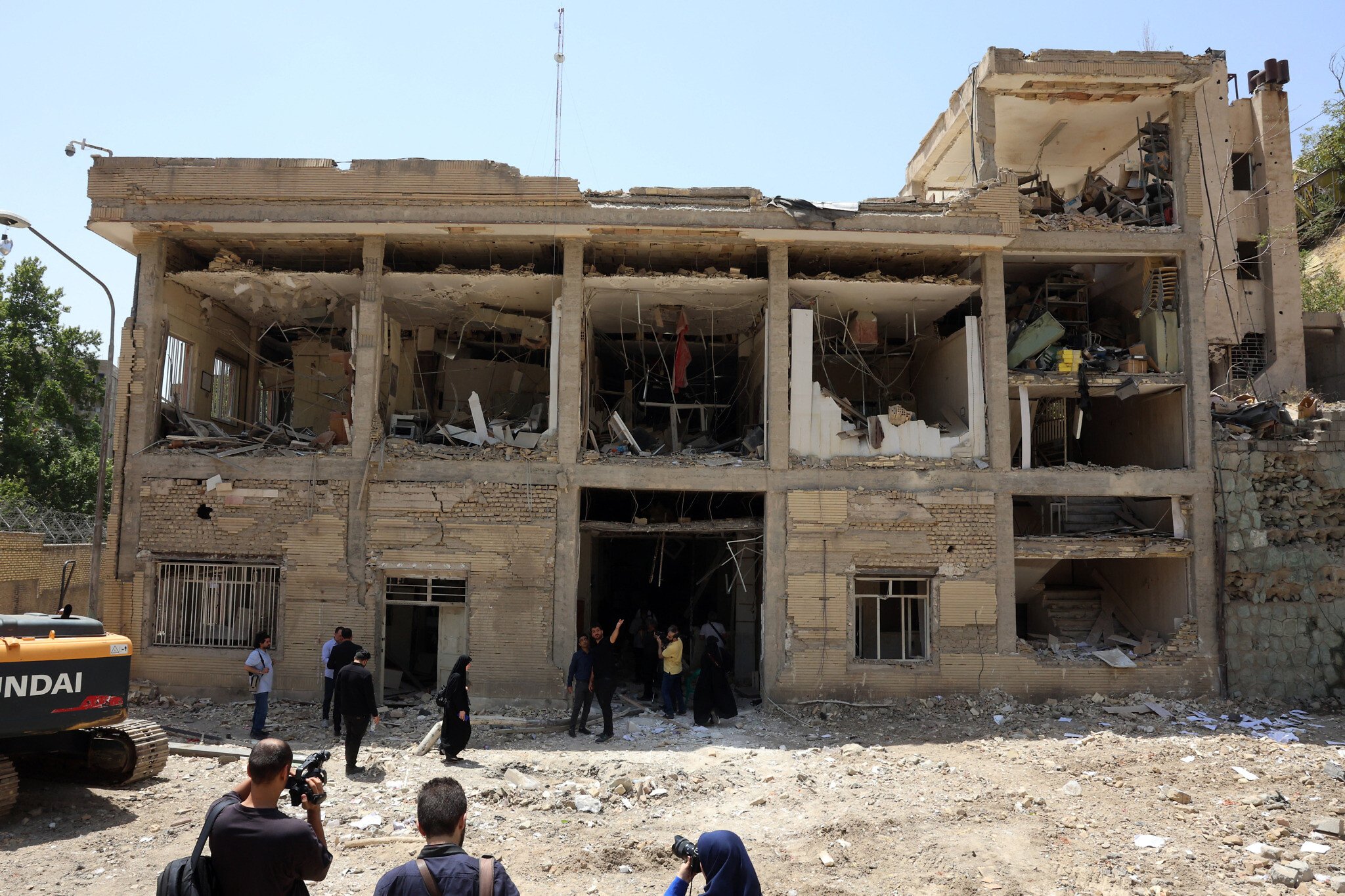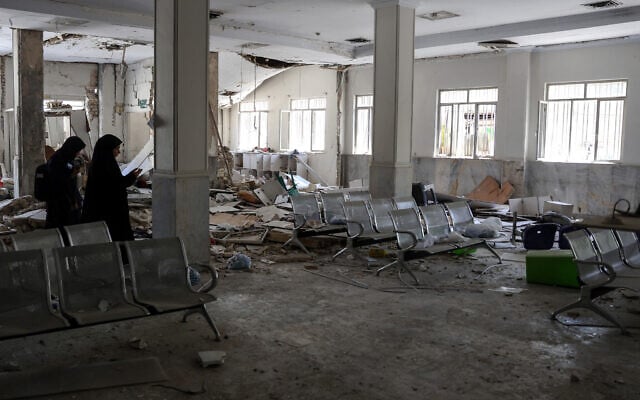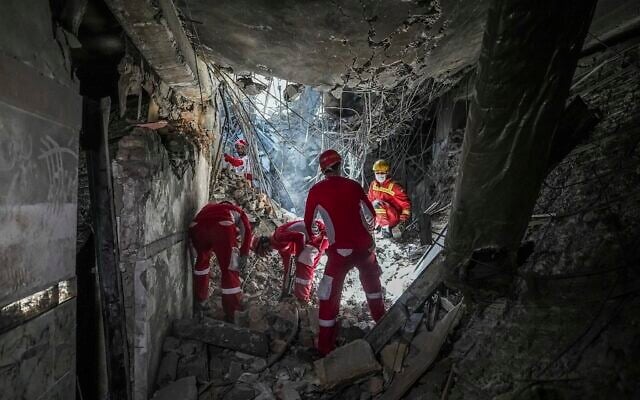



Iranian authorities have started returning hundreds of inmates to the notorious Evin Prison, which was severely damaged in an Israeli airstrike during June’s 12-day conflict between Jerusalem and Tehran, according to a Saturday report.
The prison, which is located in northern Tehran, is known for housing political prisoners and foreigners in harrowing conditions. It was bombed on June 23, the penultimate day of the war, in a strike that killed at least 80 people, according to Iranian authorities.
According to a report in The New York Times, some 600 prisoners were recently taken back to the prison compound after damaged areas were refurbished, but an inmate decried the new wards as a “dark dungeon” that does not meet “bare minimum conditions critical for human life.”
“According to Iran’s own regulations, under no circumstances should prisoners be held in conditions where basic facilities, such as medical care or sanitation, are unavailable — this constitutes a violation,” Saeid Dehghan, a prominent lawyer who represents Iranian prisoners, told The Times.
According to a joint statement released by several prisoners, several inmates refused to shackle their hands and feet during the transfer to the prison and were violently beaten by guards.
The inmates who were beaten included Mostafa Tajzadeh, 68, a former deputy interior minister, whose wife, Fakhri Mohtashamipour, said she was surprised at the level of damage to the prison caused by the Israeli attack.

“The extent of the damage was significant and deeply concerning,” she said. “Prisoners in these wards still lack access to their personal belongings, creating a sense of temporary displacement, as if they have been hastily relocated to these minimally functional wards.”
Last week, Human Rights Watch alleged that the Israeli strike on the prison was “an apparent war crime,” while also accusing Tehran of harming and disappearing prisoners after the attack.
Human Rights Watch said the attack was “unlawfully indiscriminate” and that there was no evidence of an advance warning or a military target before striking the prison complex, which holds an estimated 1,500 prisoners.
“To make matters worse, Israeli forces put at grave risk prisoners who were already victims of Iranian authorities’ brutal repression,” Michael Page, the rights group’s deputy Middle East director, said.
The group said that prisoners were subject to “ill-treatment and violence” both as they were being taken out of the prison following the attack and as they were returned. The group says some of the prisoners have disappeared, including Swedish-Iranian doctor Ahmadreza Djalali, who is at risk of execution. The rights group added that Iran has refused to give it any information about his whereabouts.

The conflict between Israel and Iran began on June 13 with a surprise Israeli attack.
Israel said its sweeping assault on Iran’s top military leaders, nuclear scientists, uranium enrichment sites, and ballistic missile program was necessary to prevent the Islamic Republic from realizing its avowed plan to destroy the Jewish state.
Iran has consistently denied seeking to acquire nuclear weapons. However, it enriched uranium to levels that have no peaceful application, obstructed international inspectors from checking its nuclear facilities, and expanded its ballistic missile capabilities. Israel said Iran had recently taken steps toward weaponization.
Iran retaliated to Israel’s strikes by launching over 500 ballistic missiles and around 1,100 drones at Israel. The attacks killed 31 people and wounded over 3,000 in Israel, according to health officials and hospitals.
